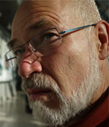:::ICCE 2013
Keynote Speakers
C2 : ICCE Conference on Computer-supported Collaborative Learning (CSCL) and Learning Sciences |
|

|
Marcia C. LINN, University of California, Berkeley, USA |
|
Title of Speech: Designing Visualizations and Automated Guidance to Create 21st Century Learners |
|
|
Abstract: Open source, online learning environments can transform education and support worldwide efforts to promote the capabilities students need for the 21st Century. Recent research suggests promising ways to take advantage of online, dynamic visualizations of complex phenomena such as global climate change. New technologies offer ways to diagnose student progress and provide automated guidance. These environments can use this information to create tools that enable instructors to efficiently monitor student progress and plan coherent lessons. Examples from the Web-based Inquiry Science Environment (WISE), an open source, customizable learning environment featuring a library of curriculum materials, will illustrate designs for instruction, assessment, and teaching tools that develop integrated understanding and provide a firm foundation for future learning. These recent trends have valuable implications for the design of learning environments that provide continuous assessment and guidance for students. |
|
C1: ICCE Conference on Artificial Intelligence in Education/Intelligent Tutoring System(AIED/ITS) and Adaptive Learning |
|

|
Imam ROBANDI, Institut Teknologi Sepuluh Nopember, Indonesia |
|
Title of Speech: Intelligent Control Solutions using MATLAB: Laboratory based education experiences for academic atmosphere improvement |
|
|
Abstract: Intelligent control application now is rapidly growing in industry. Control System Toolbox of MATLAB provides industry-standard algorithms for systematically searching, analyzing, designing, tracking, observing and tuning linear and nonlinear control systems. MATLAB presents the system as a transfer function, polynomial, conventional algebraic, plotting, state-space, pole-zero-gain, or frequency-response model. The Intelligent controls consist of Fuzzy Logic, Optimal Control (LQR, Linear Quadratic Regulator), Genetic Algorithm (GA), Neural Network (NN), Artificial Immune System (AIS), Bee Colony Algorithm (BCA), Ant Colony Optimization (ACO), Simulated Annealing (SA), Particle Swarm Optimization (PSO), and Bacterial Foreging. The problems in power engineering consists of design, optimization, parameter tuning, and modeling. Step response plot of the power system can be visualized as behavior in time domain and frequency domain. Stability analysis (dynamic and transient) of control can be demonstrated through interactive and automated techniques through MATLAB. Power System as a MIMO (Multi Input Multi Ouput) system can be easily modeled in a Linear and Non-Linear System as a state space. The controlability, observability, and stability are mandatory requirements of intelligent control which can be performed by using MATLAB easily. |
|
C4: ICCE Conference on Classroom, Ubiquitous and Mobile Technologies Enhanced Learning (CUMTEL) |
|

|
Marcus SPECHT, Open University in the Netherlands, The Netherlands |
|
Title of Speech: We need Mindful and Seamless Learning Technologies |
|
|
Abstract: Seamless technologies are with us everyday. We use personal technologies that link our physical reality and environment with digital friends, media, discussion groups. Public display technologies become more and more present in our everyday environments and woven into everyday activities from riding a train to a visit in the zoo or a museum. Digital and real worlds are more and more merging and our perception and focus sometimes is blurred and we are distracted by the one or the other. This has an important societal impact that the generation of mobile natives is becoming aware of. Some key components of learning are curiosity, focus, flow, endurance, or the framing of new knowledge in relation to earlier experiences and knowledge. New technologies enable some of these but they also hinder some of these. The keynote will give some ideas on how to design seamless learning technologies in a mindful way to enable focus, avoid distraction, foster endurance and curiosity, or enable framing of experiences. The affordances of new technologies will therefore be mapped on how they can facilitate best conditions for learning, ranging from linking of real world activities and curricular structures to the usage of mobile notifications for reflection or awareness in acting and learning. |
|
C6:ICCE Conference on Technology Enhanced Language Learning (TELL) |
|

|
Glenn STOCKWELL, Waseda University, Japan |
|
Title of Speech: Motivating to learn or learning to motivate? Examining the relationship between technology and motivation in language learning |
|
|
Abstract: From the early days of computer-assisted language learning (CALL), there has been discussion of how technologies can play a role in motivating learners in learning a language (e.g., Warschauer 1996), and as technologies have become more sophisticated, the growing range of uses of technology in and out of the classroom increases the potential for enhanced motivation. As Dörnyei (1999, p. 525) very rightly argues, “motivation is one of the most elusive concepts in applied linguistics and indeed in educational psychology in general.” While motivation in language learning has been a consistently recurring theme over the past half a century or more, the last few years has seen a renewed interest in motivation in the field, and a number of books have appeared recently laying testimony to its importance (e.g., Dörnyei & Ushioda, 2011; Murray, Gao, & Lamb, 2011). Increased motivation has often been given as the justification for the introduction and use of technology in language learning environments, but what is the nature of the relationship between motivation and technology, and what are the characteristics of the motivation for using technology for learning a second language? This presentation looks at how technology can be used in language learning contexts, and the relationship between technology and motivation in language teaching and learning. It begins with looking at general issues associated with technology and motivation, including a brief discussion of the so-called inherent motivational benefits of using technology, including the related concept of learner autonomy. It then considers the issue of motivation for using technology from both the teacher’s and learner’s perspective, followed by an overview of communication technologies that have come into the mainstream in English language teaching and learning, and how these can impact motivation. These include writing for a real audience through blogs and social networking tools (e.g., Lee, 2009) and the potential benefits of anonymity that may be seen in different types of communication tools such as virtual worlds (e.g., Deutschmann, Panichi, & Molka-Danielsen, 2009). The presentation continues with an examination of mobile technologies for language learning, and explores the concept of private and studying spaces (cf., Stockwell, 2010). The presentation concludes by examining the local and global issues associated with using technology for language learning, and how motivation may be affected by the technologies that are available in both more and less technologically advanced regions. |
|
Invited Speakers
C3:ICCE Conference on Advanced Learning Technologies (ALT), Open Contents, and Standards |
|
 |
Tore HOEL, Oslo and Akershus University College of Applied Sciences, Norway |
|
Title of Speech: Standards as enabler for innovation in education – a reality check Content, and Standards |
|
|
Abstract: |
|
C5: ICCE Conference on Digital Game and Digital Toy Enhanced Learning and Society (GTEL&S) |
|
 |
Ming-Puu CHEN, National Taiwan Normal University, Taiwan |
|
Title of Speech: Designing Digital Game-based Learning for Enhancing Critical Thinking |
|
|
Abstract: |
|
C7: ICCE Conference on Practice-driven Research, Teacher Professional Development
|
|
 |
Jianwei ZHANG, University at Albany, SUNY, USA |
|
Title of Speech: |
|
|
Abstract: |
|
